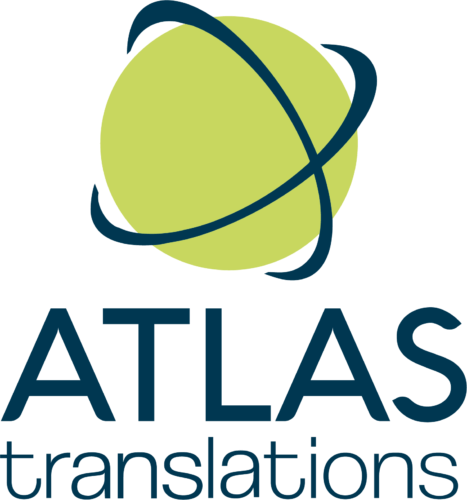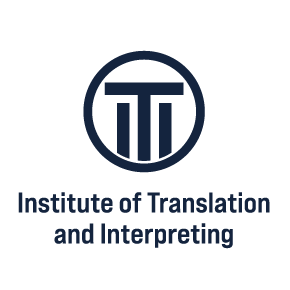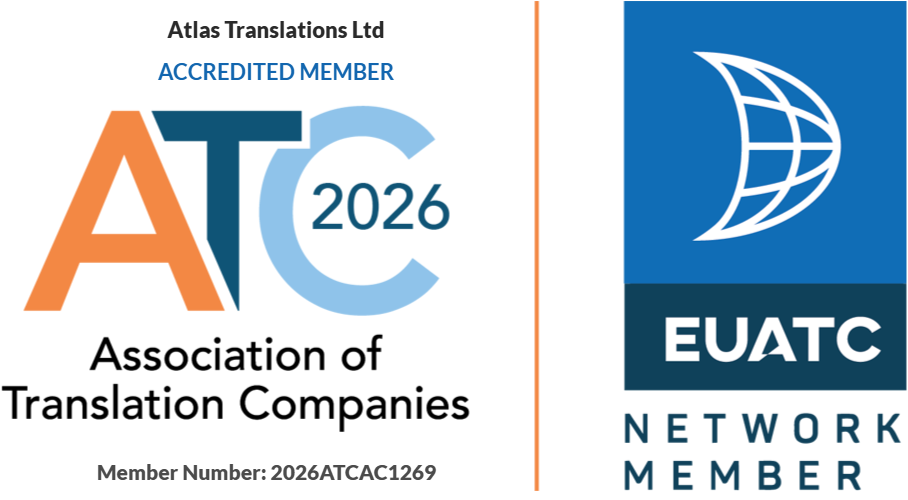Video Game Localisation: Why Professional Translation Services Create Winning Player Experiences
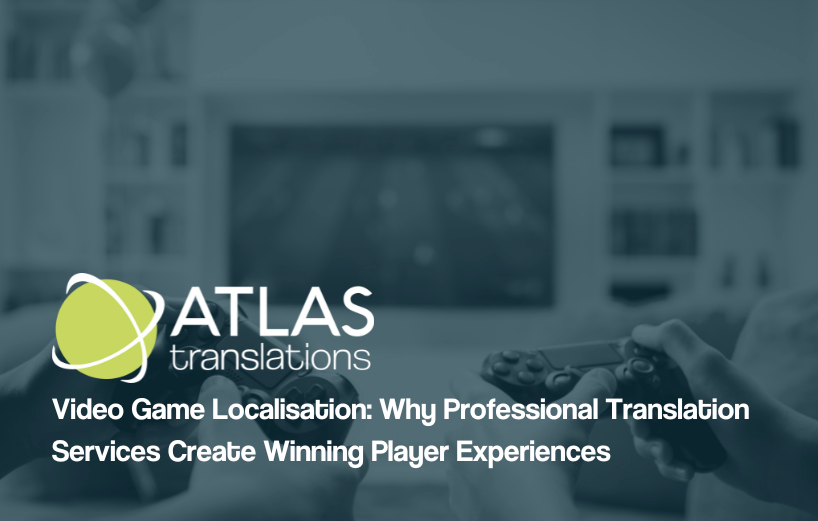
Remember the first time you played a game that just felt…off? Perhaps the dialogue felt stilted, lacking a natural flow, or even (sometimes hilariously) just plain wrong. That’s what happens when video game localisation isn’t done right. And considering the industry is worth nearly $200 billion globally, having accurate localisation doesn’t seem like too much to ask.
When a game feels native to players, they’re not thinking about localisation or translation. They’re immersed in the story, invested in the experience, and desperately trying to win the boss-level showdown. But that’s what the magic of professional game localisation is all about. Making the player environment feel just like real life, and sometimes even better. However, it’s far more complex than simply swapping English words for French or Cantonese.
What can we help with today?
Call us on +44 (0)1727 812 725 or email us at team@atlas-translations.co.uk – we’re only a call, chat, or email away, and we’re always eager to help!
What Makes Video Game Localisation Different from Standard Translation?
Game localisation isn’t your typical translation project. It’s a blend of linguistic precision, cultural awareness, and creative adaptation that touches every aspect of a player’s experience.
We’re talking about UI text with strict character limits, dialogue that needs to match lip movements, subtitle timing that can’t obstruct gameplay, and marketing materials that need to make sense across different cultures. Then there’s the technical side: string length constraints, placeholder variables, and integration requirements that would make a standard document translator’s head spin.
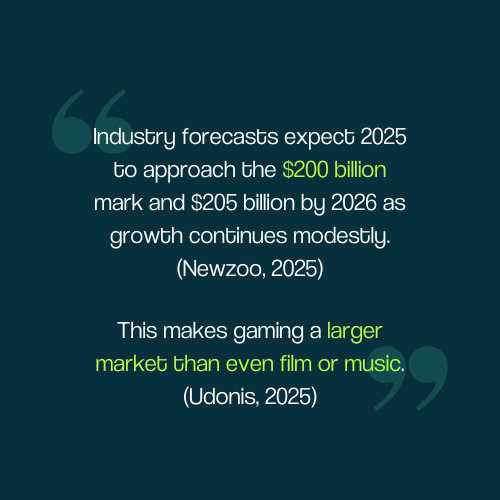
Games are interactive, which means every translated word affects how players connect with the content. A poorly localised tutorial confuses players. Awkwardly translated dialogue breaks immersion. Humour that doesn’t adapt culturally falls completely flat.
That fantasy RPG where characters speak in a formal, archaic style? That tone needs to carry through to every language. The witty banter in your indie platformer? It needs to land just as cleverly in Spanish, German, and Japanese. This is where professional translation services that understand gaming culture become invaluable.
The Cultural Dimension: Why Context Matters More Than You’d Think
What makes players laugh in the UK might not even register in South Korea. What’s considered edgy storytelling in one market might cross lines in another. Colour symbolism varies dramatically across cultures. Red means danger in Western markets but represents luck and prosperity in China.
We’ve seen developers learn this lesson the hard way. Character names that sound heroic in English but mean something unfortunate in another language. Cultural references that require complete reimagining rather than direct translation.
When Direct Translation Fails Players
Think about region-specific gaming references. While a joke about “grinding” in an MMO (massively multiplayer online) may translate as intended in one market, it may not be the best option for others 🫣
Measurements are another area that requires accuracy to avoid confusion between the Imperial/Metric systems, especially for UK and US audiences.
Age rating systems also vary significantly from country to country. What’s acceptable for a PEGI 12 rating in Europe might need adjustments to meet requirements in other markets.
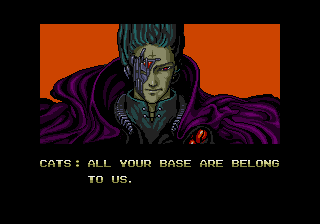
The infamous Zero Wings gaming blooper (“All your base are belong to us”) from the 1990s is a great example. A combination of too few native English speakers, limited editing, no in-game context, and no quality assurance made for legendary, pre-meme-worthy content.
Professional localisation and translation can navigate these cultural minefields and keep your game’s core identity intact.
The Business Case: Why Professional Localisation Protects Your Investment
You’ve invested months or years developing your game. Your team has poured creativity, time, and substantial budget into making something brilliant. Cutting corners on localisation undermines everything else you’ve done.
Poor localisation shows up immediately in reviews. Players are vocal about games that feel hastily translated, and negative reviews in key markets directly impact sales. Meanwhile, games with quality localisation open up entire markets and player bases that might otherwise never discover your work.
Professional translation services provide:
- Consistency across all game materials
- From in-game text to marketing collateral and player documentation
- Native speakers
- Who actually understands gaming culture and terminology in each target language
- Rigorous testing and QA/QC processes
- To catch issues before players do
- Legal compliance support
- For age ratings, content warnings, and regional requirements
- Post-launch support
- For updates, patches, and downloadable content (DLC)
The return on investment isn’t just about avoiding negative reviews. It also involves building a brand that players trust and recommend across borders.
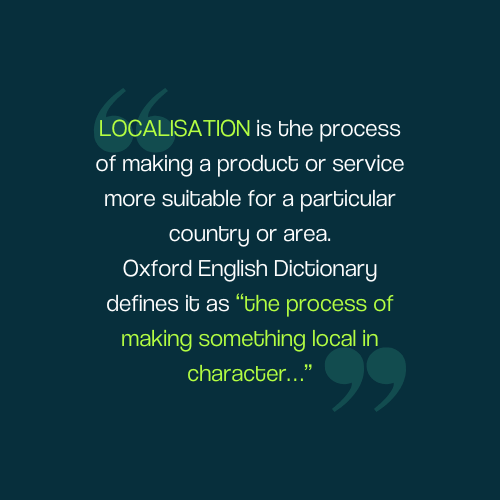
What Professional Game Localisation Actually Involves
Game localisation isn’t a case of sending files over and getting translations back. It’s a collaborative process that starts well before launch and continues throughout your game’s lifecycle.
Beginning with understanding your game’s world, tone, and target audience, the context shapes every translation decision that follows. From there, style guides are created and maintained to help with consistency across all content. Our linguists are professional translators and gamers who understand the industry’s terminology and player expectations.
Then comes linguistic quality assurance, where translations are tested to see how they work during gameplay. Do the subtitles sync properly? Does the dialogue feel natural? It’s a needed process to make sure your game genuinely resonates with players in each language.
From Indie Titles to AAA Releases: Video Game Localisation at Every Level
Professional localisation isn’t exclusively for major studios with massive budgets. The UK has a thriving indie game development scene, and we’re seeing brilliant games from small teams reaching global audiences.
Whether you’re a two-person indie studio or an established developer working on your next AAA title, the principles remain the same. Your game deserves to connect with players authentically, regardless of their language.
What scales are the scope and complexity, not the quality standards. An indie puzzle game might have less text to localise than an open-world RPG, but both need the same attention to cultural adaptation and linguistic accuracy.
Making Your Game Work Worldwide
Game localisation is specialised work that sits at the intersection of language, culture, and technology. Getting it right means partnering with professionals who understand both the linguistic side and the gaming industry’s unique demands.
The difference between a game that feels translated and one that feels native often comes down to the expertise behind the localisation. Professional translation services protect your game’s reception in new markets, maintain your brand’s integrity across languages, and help players connect with your work the way you intended.
Your game deserves to resonate with players worldwide, not just exist in their language. That’s what professional localisation delivers, and that’s what separates games that succeed globally from those that merely get translated.
We’d love to hear from you!
You can call us on +44 (0)1727 812 725 or email team@atlas-translations.co.uk. We respond quickly to all enquiries and are always happy to chat about your needs.
If you’d like to visit us in person to learn more about our services or to drop off documents, just give us a call or email us to arrange a time.
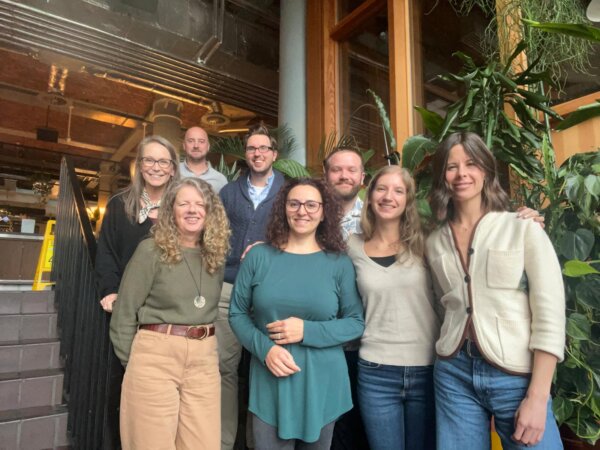
The A-Team (back row: Anna, Jim, Alex, and Rhys; front row: Clare, Steffi, Joanna, and Amy)
During UK working hours, you can also use our Live Chat option (bottom right of the screen). You’ll always be connected with a real person, not a bot!
And if you need a fast estimate, our Get a Quote button at the top of the website makes it easy.
Can I Trust Atlas Translations?
Atlas Translations is certified to ISO 9001:2015 (Quality Management) and ISO 17100:2017 (Translation Services) standards. For confidential projects, we’re happy to sign a non-disclosure agreement (NDA).
We’ve been registered with the Information Commissioner’s Office (ICO) for over 20 years, reflecting our long-standing commitment to privacy and data protection.
We’re proud to provide fast, friendly, high-quality services—but don’t just take our word for it. Check out our client testimonials and TrustPilot reviews.
Global Voice, Local Touch
If you’re looking for some top tips for partnering with Atlas Translations, we have some top tips to share! We answer 25 of our clients’ most frequently asked questions, ranging from typesetting queries to discussing reference materials.
Click to download Global Voice, Local Touch
